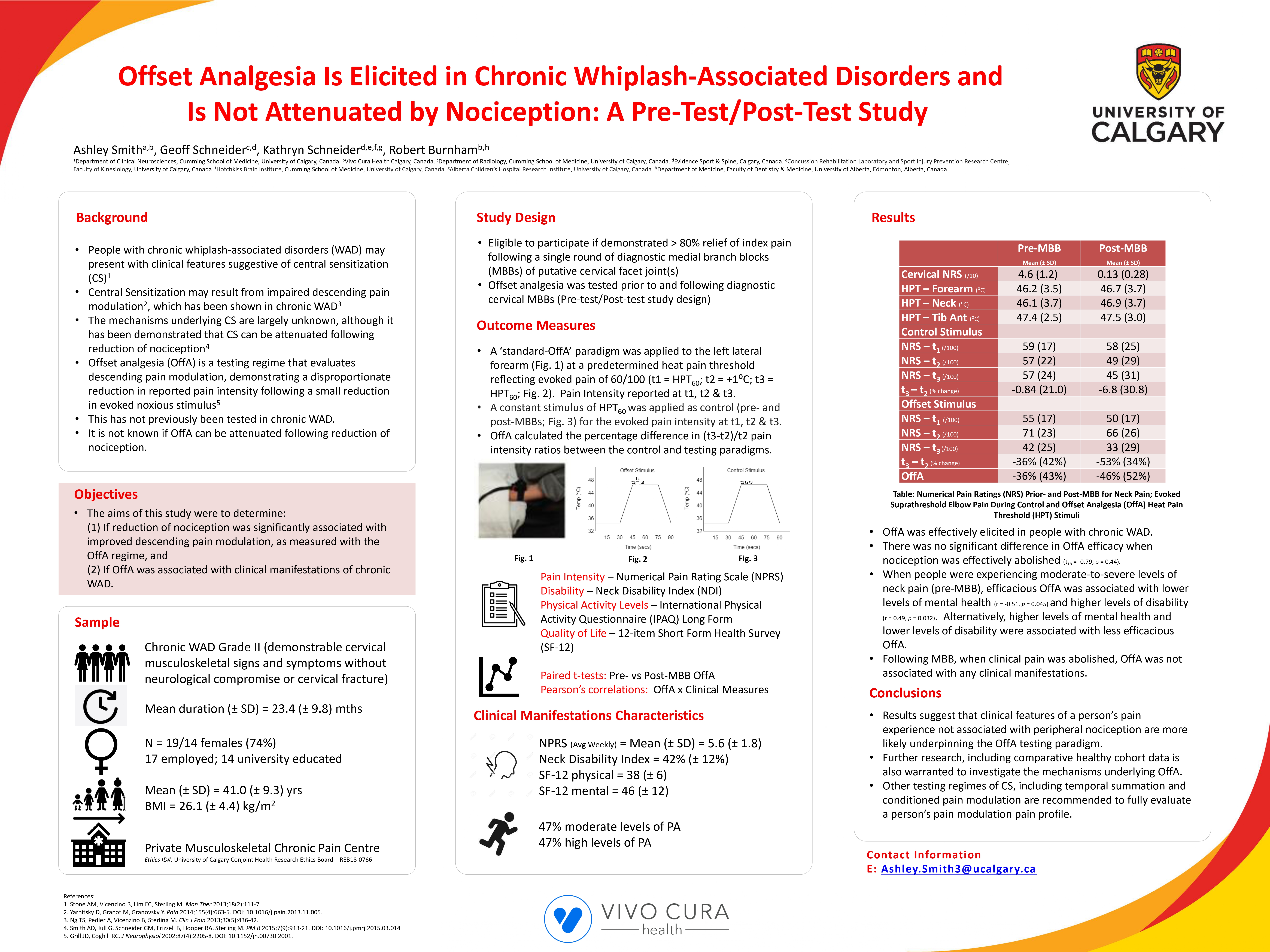Offset Analgesia is Elicited in Chronic Whiplash-Associated DIsorders and is not Attenuated by Nociception: A pre-test/post-test study
Presented by Ashley Smith at Canadian Pain Society Meeting, Ottawa, May 29, 2024
What question is this study trying to answer?
People with chronic whiplash-associated disorders (WAD) may show signs of increased sensitivity to pain, known as central sensitization. Central sensitization can result from impaired pain processing by the nervous system, as previously shown in chronic WAD patients. There is still a lot to understand about the mechanisms underlying central sensitization; however, we do know that a reduction in nociceptive pain can lead to improved central sensitization. Using offset analgesia (OffA), we can evaluate pain processing by examining the levels of pain reduction when an individual is exposed to a painful stimulus. The use of OffA has not previously been tested in chronic WAD patients; thus, this study seeks to understand if (1) a reduction in nociceptive pain is significantly associated with improved pain processing and (2) if OffA is associated with the symptoms seen in patients with chronic WAD. For this study, OffA was tested before and after successful diagnostic cervical medial branch blocks (MBBs).
What did we learn?
The results of the study revealed the following findings:
– Offset analgesia (OffA) was successfully tested in patients with chronic WAD.
– There was no effect on OffA effectiveness when nociceptive pain was absent.
– In individuals experiencing moderate to severe neck pain before the medial branch block (MBB), OffA effectiveness was higher when associated with lower levels of mental health and higher levels of disability. Conversely, higher levels of mental health and lower levels of disability were linked to less effective OffA.
– In individuals after MBB, when pain was completely reduced, OffA showed no associations with the symptoms typically found in chronic WAD.
Why is this relevant?
The results indicate that the clinical features of a person’s pain experience, when not associated with pain processing, may be more relevant for testing offset analgesia (OffA). Further research is warranted, including data from healthy cohorts, to investigate OffA more thoroughly. Additionally, testing temporal summation and conditioned pain processing is recommended to fully understand how a person processes pain.
If you have questions or comments about this post, please email us at research@vivocura.ca
NOTE: This was written to help the reader become familiar with some of the research we are doing here at Vivo Cura Health. This post, and all other content on this website are not intended to be a substitute for medical advice, diagnosis, or treatment. Please consult with a certified healthcare provider to discuss if a treatment is right for you.


